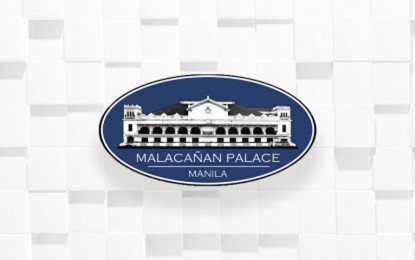
MANILA – President Ferdinand R. Marcos Jr. has approved the implementation of the Philippines' tariff commitments under the Regional Comprehensive Economic Partnership (RCEP).
Marcos signed Executive Order (EO) 25 on May 7, approving the National Economic and Development Authority (NEDA) Board's recommendation to operationalize the country's schedule of tariff commitments under RCEP.
"There is a need to modify the rates of import duty on certain imported articles in order to faithfully comply with the Philippine Schedule of Tariff Commitments under the RCEP Agreement," he said in EO 25.
Republic Act 10863, or the Customs Modernization and Tariff Act, provides that the President, upon the NEDA's recommendation, shall modify import duties, including any necessary change in classification and other import restrictions, as required or appropriate, to carry out and promote foreign trade with other countries.
Under EO 25, all originating goods of RCEP member countries that are subject to tariff differentials shall be levied the prescribed rates of duty, subject to the submission of a Proof of Origin and compliance with all applicable requirements under the agreement.
The order covers those that "are entered into or withdrawn from warehouses or free zones in the Philippines for consumption or introduction to the customs territory."
"The Tariff Commission may be requested to issue advance rulings on tariff classification of goods to confirm the applicable rates of duty of particular goods subject of this Order, consistent with Section 1100 of RA No. 10863," EO 25 said.
Originating goods subject to tariff differentials shall be eligible for preferential tariff treatment applicable to the originating goods of the exporting Party, provided that the exporting Party is the RCEP country of origin.
"If the exporting Party of the originating goods is not established to be the RCEP country of origin, the Party that contributed the highest value of originating materials used in the production of those goods in the exporting Party shall be deemed the RCEP country of origin," the order read.
"The originating goods shall be eligible for preferential tariff treatment applicable to the originating goods of the RCEP country of origin."
According to EO 25, the Philippines may allow an importer to make a claim for preferential tariff treatment at the highest rate of customs duty that the Philippines applies to the same originating goods, including those from any parties contributing originating materials used in the production of such goods, provided that the importer can prove such claim.
Nothing in EO 25 shall preclude the Philippine government from invoking its right of recourse to all trade remedy measures provided for in its laws, the RCEP Agreement, and other relevant international agreements, to ensure the prevention of import surges or unfair trade practices.
EO 25 takes effect on June 2 after its complete publication in the Official Gazette or a newspaper of general circulation.
The RCEP aims to establish a modern, comprehensive, high-quality, and mutually beneficial economic partnership framework; liberalize and facilitate trade in goods and services through the elimination of tariff and non-tariff barriers, as well as restrictions and discriminatory measures; and create a liberal, facilitative, and competitive investment environment.
The RCEP participating countries are composed of the 10 Association of Southeast Asian Nations (ASEAN) member nations and its free trade agreement partners, except India, which pulled out its participation from the agreement.
ASEAN+1 partners that are part of the RCEP include Australia, New Zealand, China, Japan, and South Korea.
The Senate concurred in the RCEP ratification on Feb. 21, 2023, two years after the RCEP participating countries concluded the negotiations in November 2020.
The Philippines was the last among 15 countries to ratify the agreement. (PNA)
